Artificial intelligence (AI) has become an integral part of our lives, transforming industries and reshaping how we interact with technology. From simplifying complex tasks to fostering creativity, AI tools continue to push the boundaries of what's possible.
If the forecasts are correct, artificial intelligence will manage 95% of all customer interactions by 2025. We need to get ready for this now, don't you agree, so that we don't get left behind?
Today, we spend countless hours researching, writing, and analyzing our marketing campaigns. Nowadays, marketing is all about information about your competitors, market trends, and what your customers are saying about your product. And it is artificial intelligence that can become a magic pill that will fundamentally change the way we work with a product and most importantly, make the whole process easier.
AI-powered CRM System
4.9
Fireberry’s intuitive system and many unique features enable its use by any industry.
The most prioritized and appreciated features by both the company and its customers are the numerous customization opportunities. By customizing your platform, you can make sure every part is tailored to the individual needs of each department and user. This helps every business work with the custom-built platform which works best for them.
- Single sign on (SSO)
- Multi factor authentication (MFA)
- Device verification
- Data encryption
- Audit log
- IP restrictions
- ISO certified
- Personalized views
- Editable pages and components
- Visibility settings
- Conditional fields
- Custom fields and objects
- Sales pipelines
- Mobile app
- AI analysis
- Reports & graphs
- Dashboards
- Goals & KPIs
- Email reminders
- Time based automations
- Calendar
- Calendar resources
- Record allocation
- Role permissions
- Custom data sharing
- Time clock
1. Assessment of Influence - Influencity
Influencity bills itself as the "most advanced influencer marketing platform" on the market, and is used by giants like WPP, Kellogg's, and Samsung. The platform helps brands to evaluate and contact influencers, collaborate on campaigns, and then track their performance.
The use of influencers in social media marketing has become a major trend in recent years and shows no signs of slowing down. Whether it's for fees, products, sponsorships, or traditional advertising, social media influencers are big business for brands, especially those targeting younger audiences.
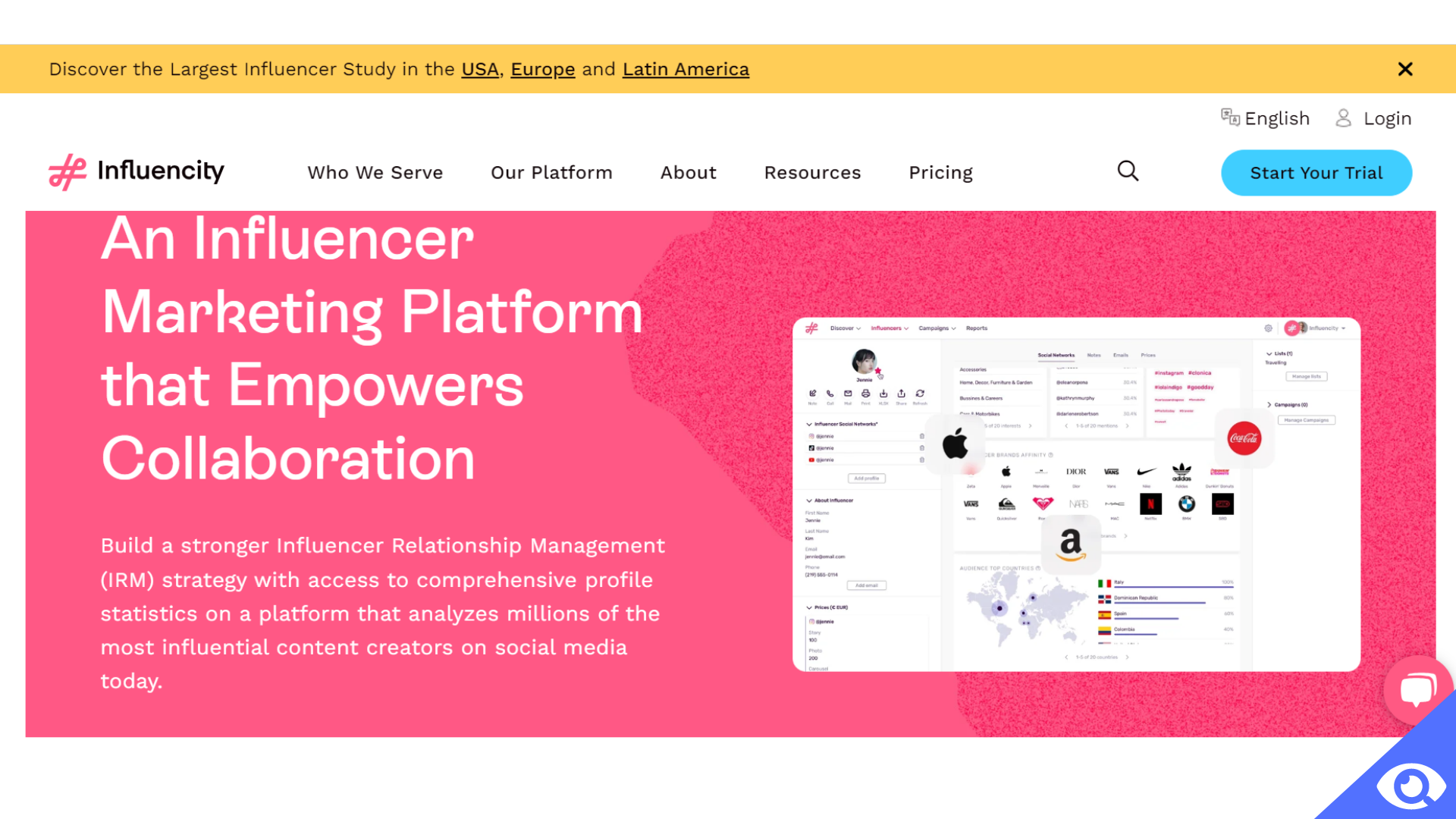
Pros:
Influencity brings data-driven insights to the forefront, aiding businesses in selecting the most impactful influencers for their marketing campaigns. By analyzing engagement metrics, audience demographics, and reach, brands can make informed decisions that align with their target audience.
Cons:
While Influencity excels at quantitative analysis, it might struggle to capture the qualitative aspects of influencer content, potentially missing out on the emotional and contextual elements that drive deeper audience engagement.
2. Monitoring of Media and Brand Mentions - Brand24
If you want to know how your brand is being mentioned online, where to start? Brand24 looks at news sites, social media, blogs, forums, videos, and other places to collect links. It then applies sentiment analysis to identify topics of conversation and the underlying emotions of reviewers and users.
You can quickly respond to criticism and intervene in customer support issues, improving customer retention and potentially identifying product and service deficiencies before they become a crisis. Much more efficient than searching for keywords on Google, Brand24 selects problematic links and good reviews, filtering out the irrelevant.
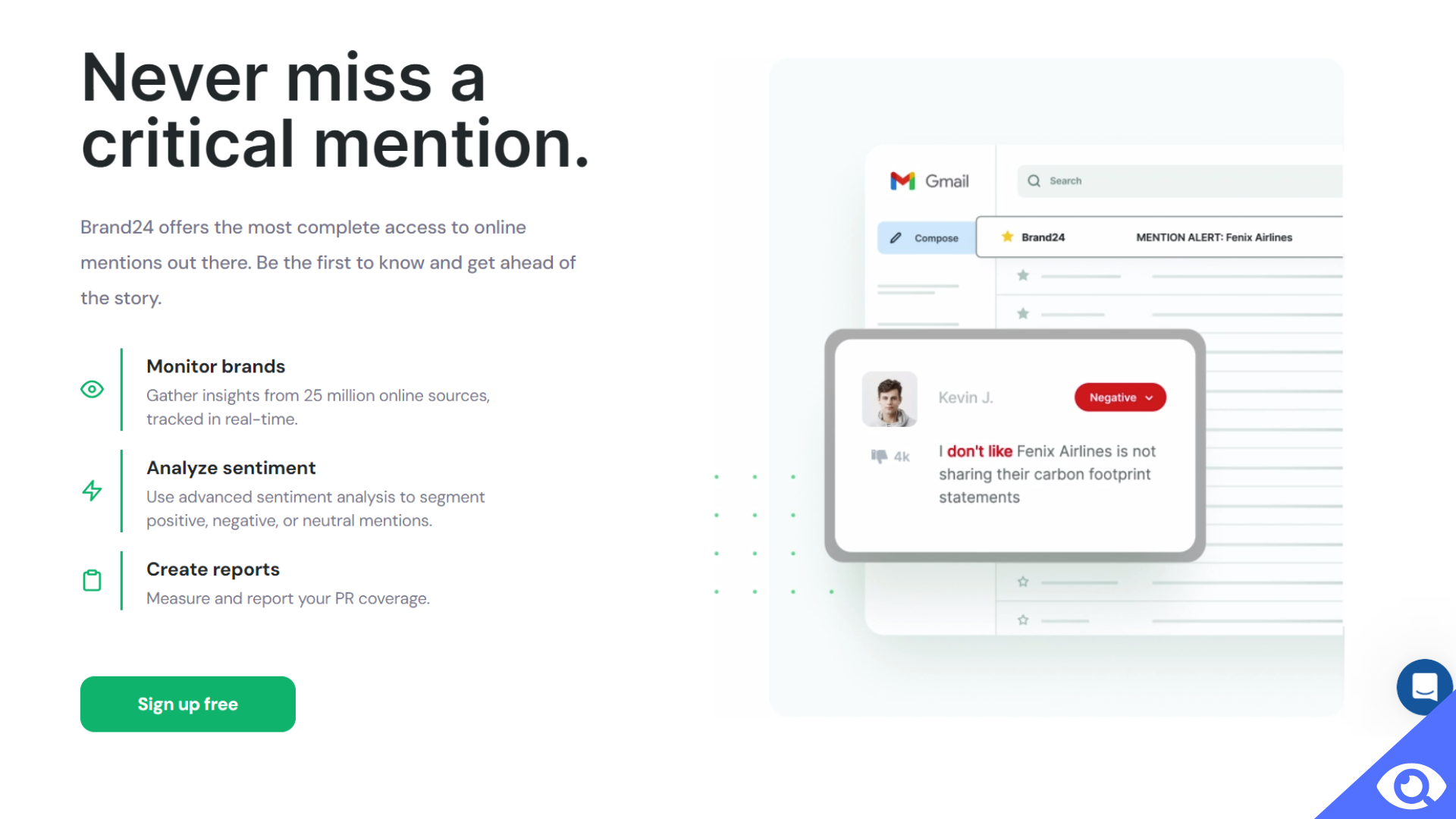
Pros:
Brand24 offers real-time monitoring capabilities that empower businesses to respond promptly to both positive and negative mentions across various platforms. This proactive approach helps in maintaining a positive brand image and fostering meaningful interactions with customers.
Cons:
Automated sentiment analysis can occasionally misinterpret context, leading to inaccuracies in categorizing mentions. This underscores the importance of human oversight in interpreting nuanced language.
3. Creation of Texts - Jasper
Jasper is a simple artificial intelligence tool for copywriting that can automatically write any text for you, saving you a lot of time and helping you to increase the efficiency of your marketing efforts. Choose the language, type of text content, tone of voice, and this tool will generate the right message for your blog, social media, advertising, etc. in seconds.
By the way, an interesting fact is that Jasper was originally called Jarvis in honor of Tony Stark's virtual assistant. Marvel sent a letter to the developer company to stop using the name after the number of users exceeded 350,000. That's how Jasper was born.
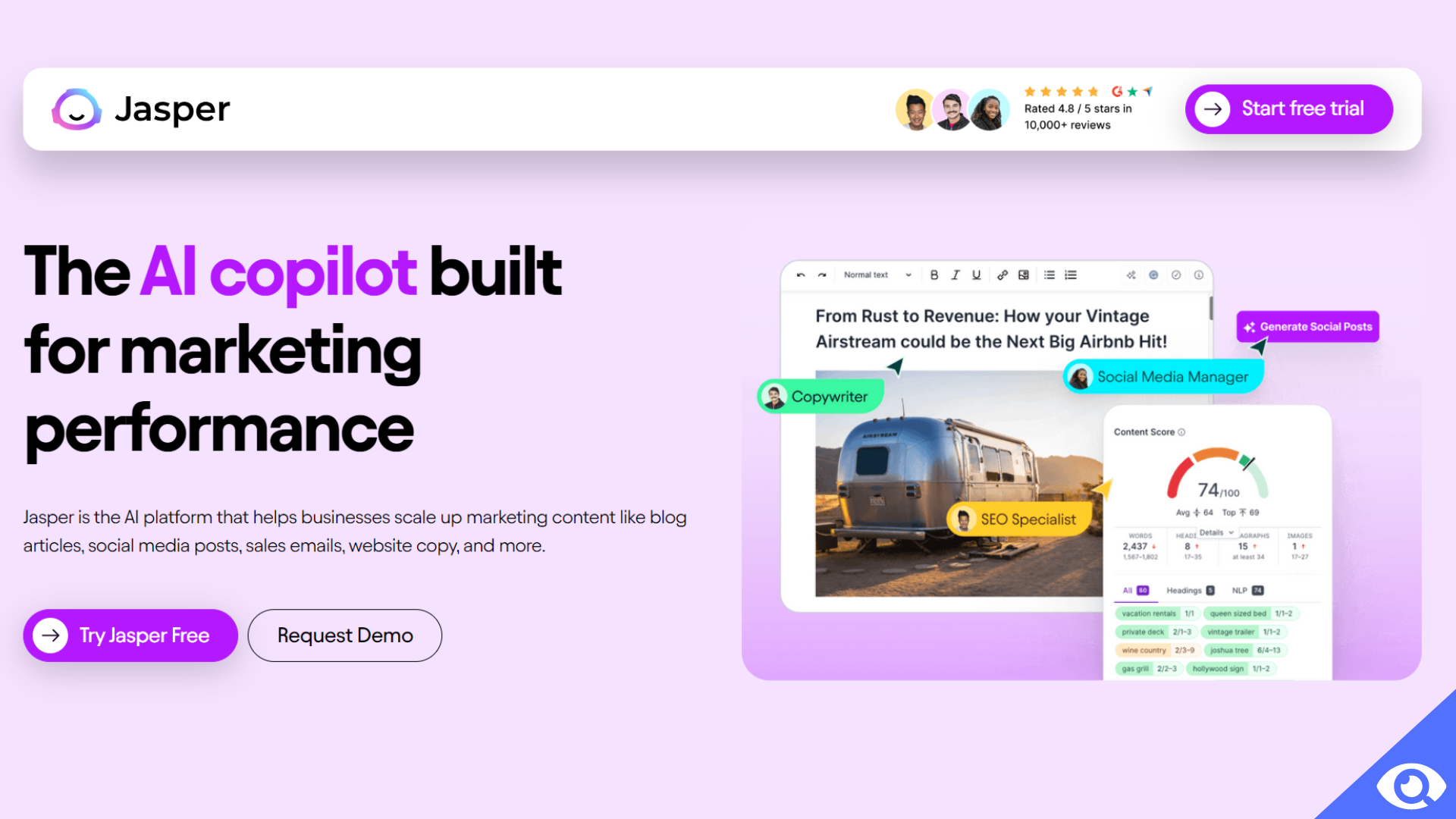
Pros:
Jasper's prowess in generating content at an impressive speed can greatly enhance the productivity of content creators. Its ability to suggest ideas and phrasing can also be an antidote to writer's block, fostering creativity.
Cons:
However, the content generated by Jasper may lack the emotional depth and intricate storytelling that human writers excel at. Certain forms of content, such as personal narratives or thought-provoking essays, might require a human touch.
4. AI Training Resource - GoogleAI
Google AI is a one-stop shop for everything related to artificial intelligence. On this site, you can find courses, research, and even blog posts. Not to mention, it has great tools such as the Google Cloud Vision API where you can upload an image of your choice and have its meaning returned in text format. You also have the option to get the same result but in logo form, which is great for reading logos.
Or, you can use this tool to create a chat (or virtual assistant) with an artificial intelligence like Google Assistant or Siri using their APIs and other tools on this site!
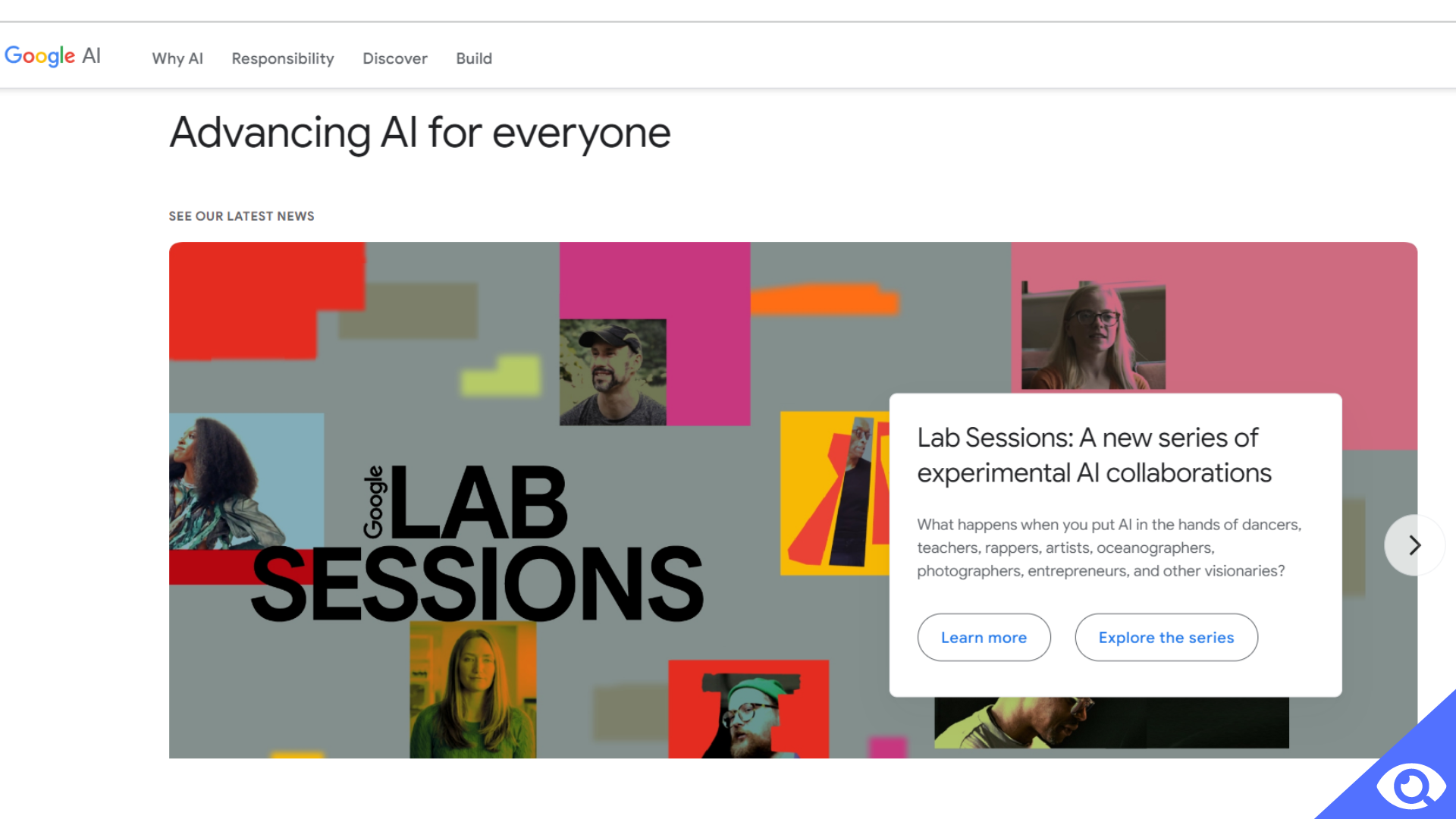
Pros:
GoogleAI serves as a treasure trove of resources for AI enthusiasts, developers, and researchers. From machine learning frameworks to cutting-edge research papers, it's a one-stop hub for staying updated on the latest advancements in the field.
Cons:
The sheer abundance of resources can be overwhelming for newcomers, potentially leading to confusion in selecting the most relevant tools for specific projects.
5. Creating Creative Content - Design.ai
Design.ai is a tool that can help you with creative content design, and it covers everything from infographics to postcards, social media creatives, and email signatures! This artificial intelligence tool is powered by machine learning, so all you have to do is tell it what you want and it will make professional images.
Additionally, Design.ai has a video tool that can turn your textual content into a video (with voiceover created by artificial intelligence), which is great for interesting stories you want to share on social media and email.
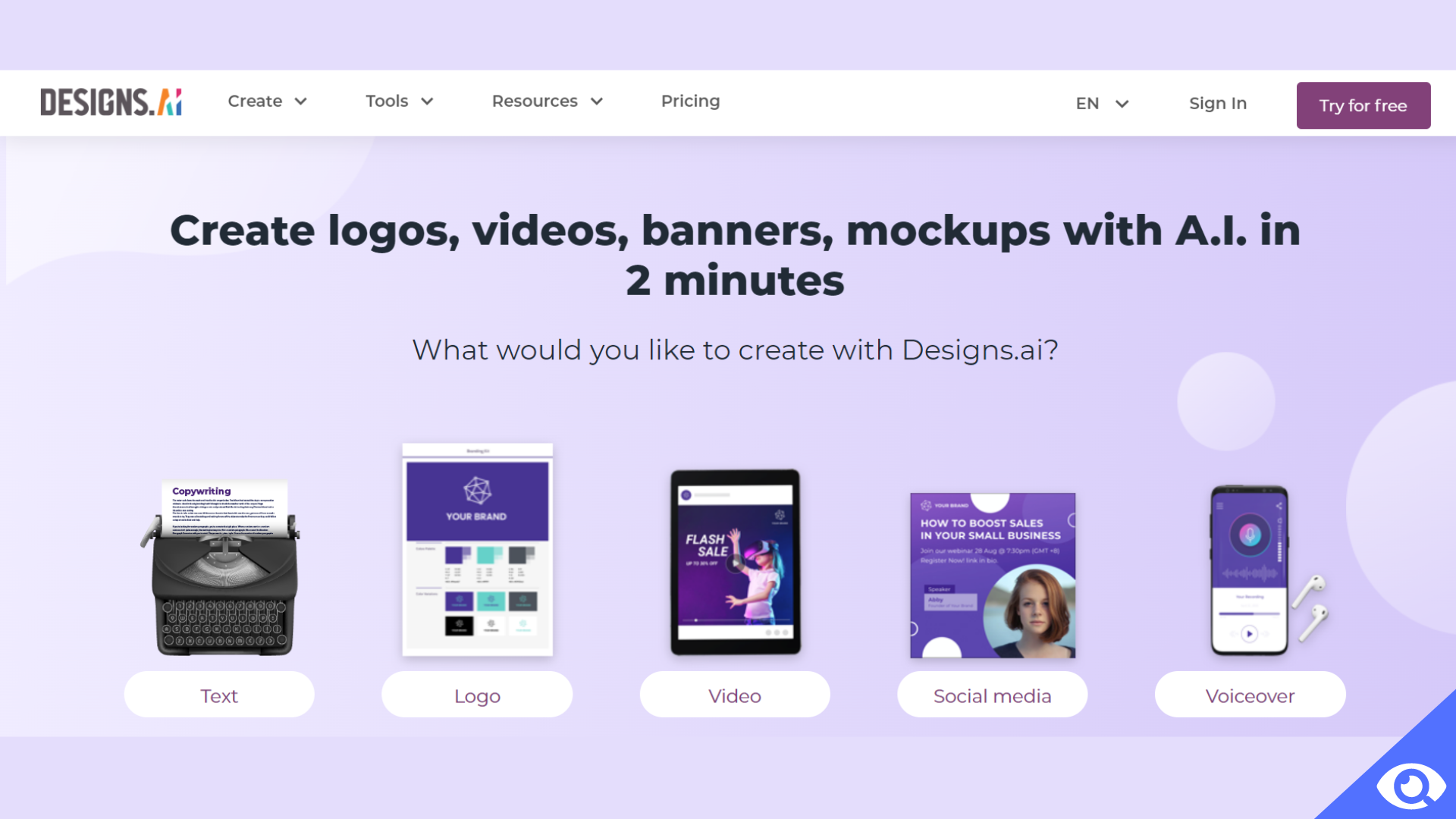
Pros:
Design.ai introduces AI into the creative realm, offering suggestions for visuals, logos, and designs. It can inspire designers with fresh perspectives, streamline the design process, and present alternatives they might not have considered.
Cons:
Relying solely on AI suggestions might lead to a homogenization of design styles, diluting the uniqueness that designers bring to their work.
6. Video Creation - Synthesia.io
Synthesia.io is an artificial intelligence tool that helps marketers create high quality videos using text! You can choose one of their avatars as a representative or create your own virtual avatar. Just copy and paste your text and this AI tool will turn it into a professional video in minutes!
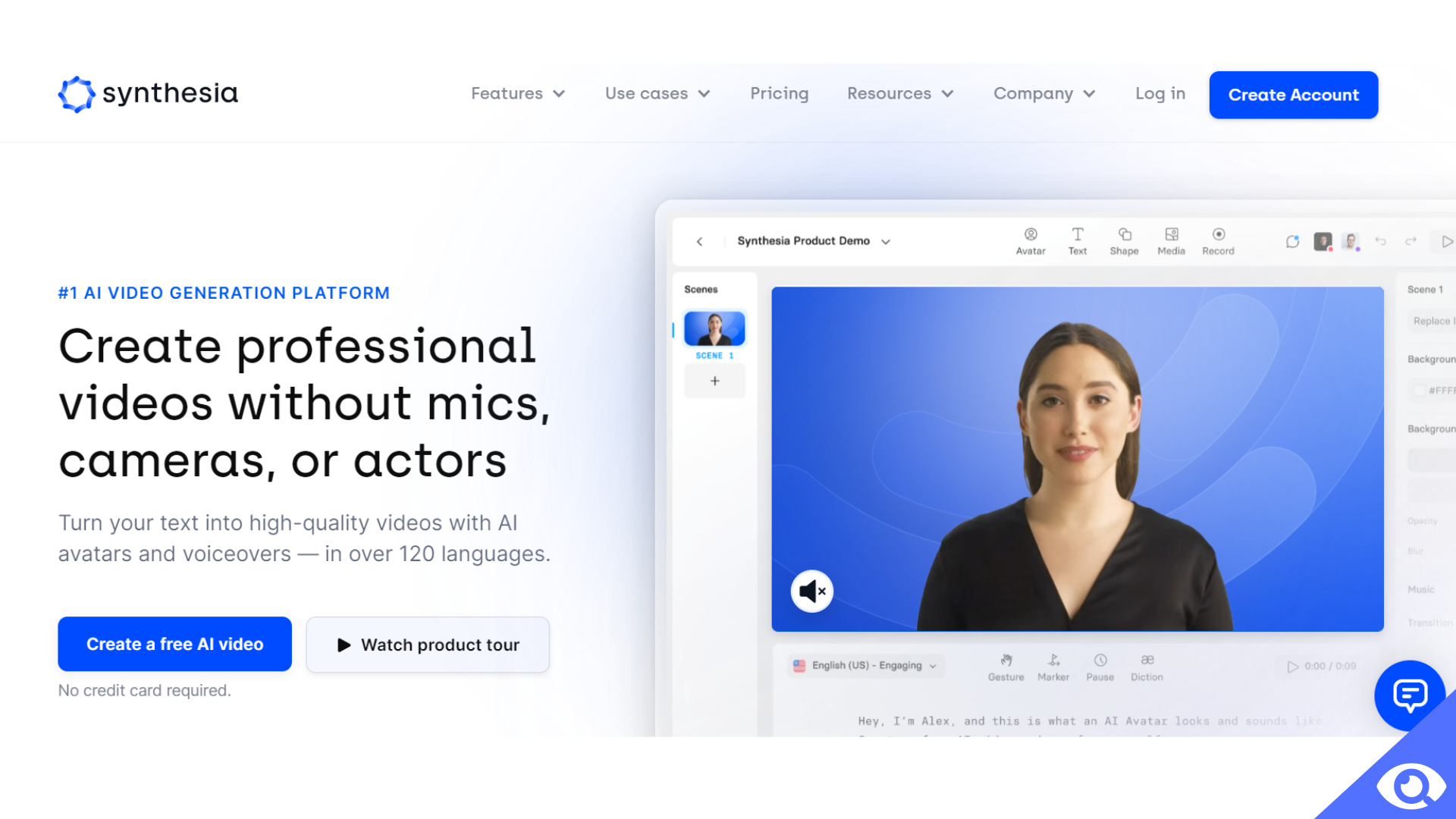
Pros:
Synthesia.io revolutionizes video creation by enabling the generation of AI-driven video content. Its virtual presenters can communicate in multiple languages and emulate human gestures, reducing the need for extensive human involvement in video production.
Cons:
However, AI-generated presenters might lack the authenticity and emotional depth that human presenters can infuse into videos, potentially impacting the overall impact of the content.
7. Advertising Automation - Exod.ai
Exod.ai is an artificial intelligence tool for Facebook ads that can help you automatically create and manage your ads. It's an AI tool that optimizes your campaigns for you, so you don't have to spend time on them! It works by training the platform to learn your business and target audience, while turning everything into conversions.
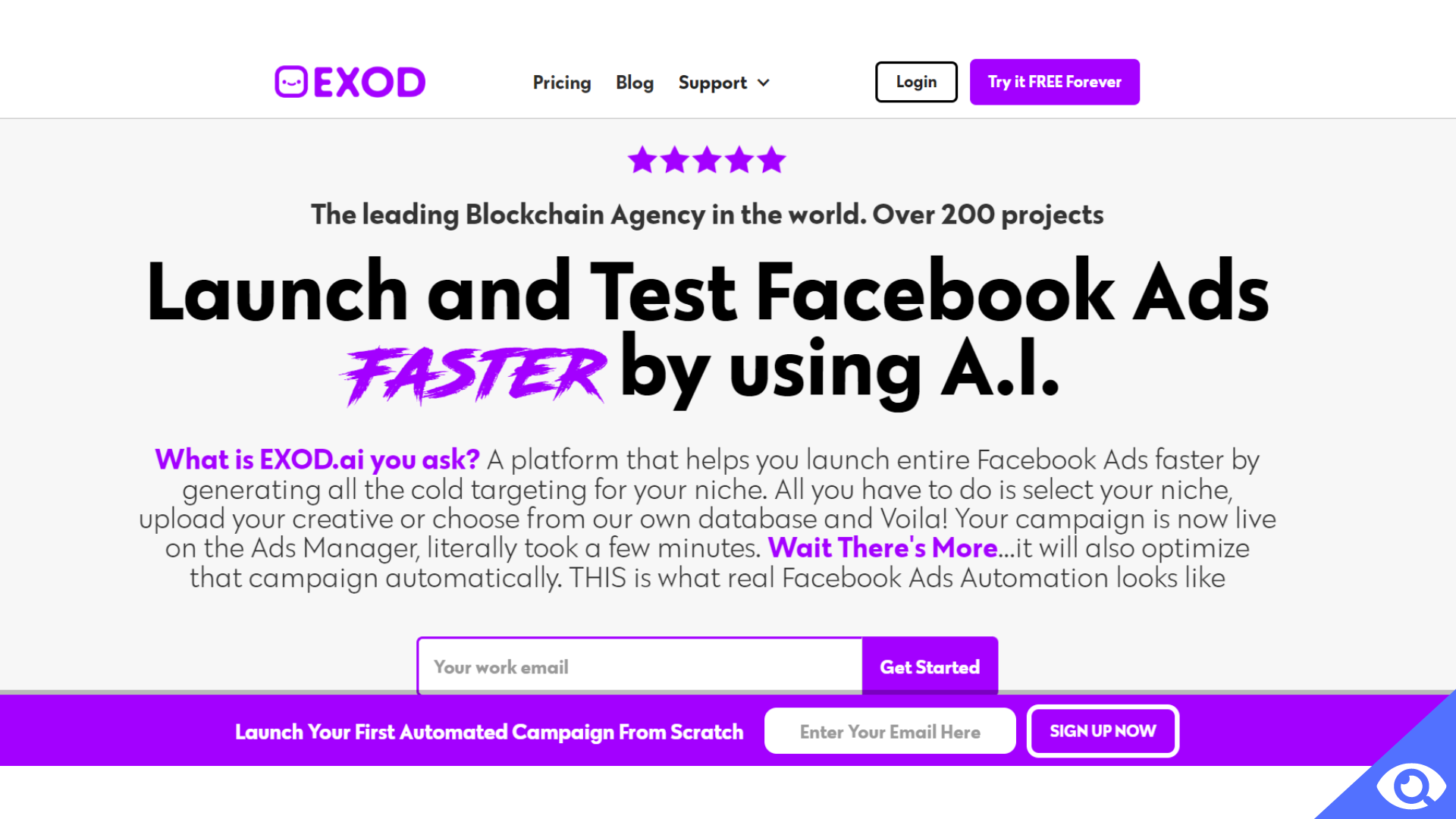
Pros:
Exod.ai simplifies the complex process of managing advertising campaigns by automating tasks such as ad placement and targeting. This allows businesses to optimize their advertising efforts, save time, and allocate resources more efficiently.
Cons:
While the algorithms within Exod.ai are powerful, they might require regular fine-tuning and occasional human intervention to adapt to rapidly changing market dynamics and evolving consumer behaviors.
Conclusions
Many of the tools listed above have free versions, so be open-minded about them and give them a try! They can be your best friend in future marketing efforts.
In the ever-evolving landscape of AI, these seven tools stand as remarkable examples of how technology is reshaping industries and redefining human capabilities. However, before fully integrating these tools into your workflow, it's imperative to consider both their strengths and limitations. AI tools are powerful allies that can amplify productivity, but they work best when complemented by human ingenuity and intuition.
[Related Article: The Role of Artificial Intelligence in CRM: The Future of Sales and Marketing]
As AI technologies continue to advance, it's likely that some of the drawbacks highlighted here will be addressed, improving the overall user experience. Staying informed about the latest trends and updates in the AI field will empower you to make educated decisions about which tools align with your goals and how to extract maximum value from them. Ultimately, the synergy between AI and human creativity has the potential to reshape industries and elevate human potential to unprecedented heights.

.png?width=140&height=140&name=Noah%20(1000%20x%201000%20px).png)



